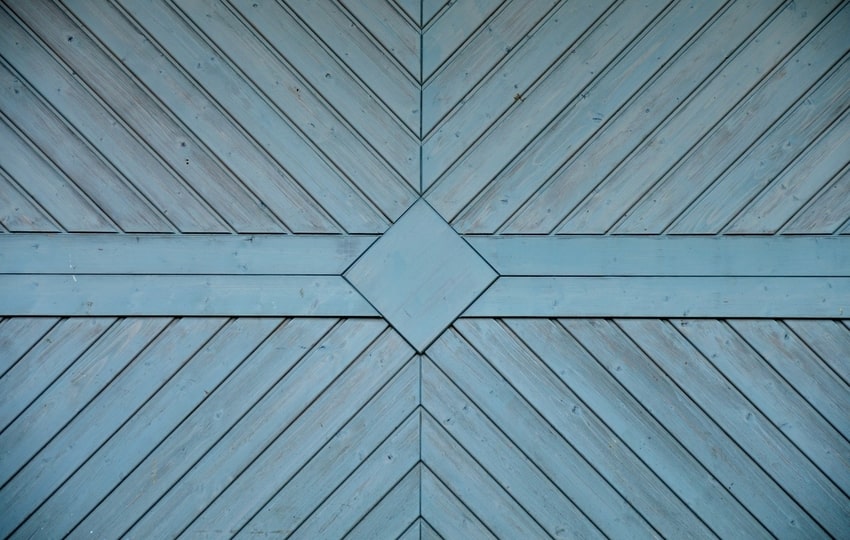The Best Kinds of Wood for a Garage Door

A beautifully detailed wood garage door can change a once boring garage façade into a central point of attention for your house’s curb appeal. A wide variety of paints, stains, and sealants are available, allowing virtually endless possibilities for creating the look and durability that you want for your door –and minimizing the time spent on garage door repair.
But before you dive into the weeds about style details, you will need to arrive at a single important decision: The type of wood to use for your garage door. As a leading Parker garage door repair company, our expertise is not only limited to the nitty-gritty of garage door repair, but the finer nuances of material, accessories, and craftsmanship.
There may not be a single “best” material when it comes to a wood garage door, but our expert installers have seen some indisputable favorites among our customers. Ultimately, deciding on a wood species depends on your priorities and preferences, but we can offer a hint of what to expect with three of the most popular kinds of wood for garage doors.
Popular Types of Wood for New Garage Doors
Mahogany
Mahogany is a clear favorite for wooden garage doors, because its combination of durability and beauty make it a suitable choice for all garages, from a single-bay structure to the multi-bay models that come standard with today’s most luxurious custom-built homes. Mahogany is very simple to work with and maintains its decorative touches over the years. It features a rich, beautiful grain and can effortlessly be finished to a high-level shine if preferred. This wood is famous for its rigidity and strength, which means a garage door repair company also specializing in installations can use it to make large garage door panels minus the risk of splitting, warping, or sagging. Mahogany naturally resists insects, a trait that is critical for an outdoor installation like a garage door.
Cedar
Besides being popular for closet renovations, Cedar is another great wood choice for garage doors. Like mahogany, it is a robust wood with exceptional resistance to harm from insects and moisture. It maintains its shape in nearly all weather, temperature, and humidity conditions, without cracking or warping. Because cedar is a more porous wood, it has the advantage of being lighter, which is less stressful on a garage door opener. Thanks to its porous nature, cedar also is a good sound-proofer and insulator.
Reclaimed Wood
Many of our garage door opener repair clients also ask about recycled or reclaimed wood for a new garage door. If you are concerned about the environment and want to reduce your home's carbon footprint, reclaimed wood may be a good choice and it lends itself well to doors that are rustic or contemporary in style. The main selling point of reclaimed wood is it does not result in cutting down fresh trees, plus the wood is already pre-seasoned, thanks to decades of exposure.
Tips to Properly Maintain Your Wood Door from a Parker Garage Door Repair Company
Many of our clients swear by a wood garage door, thanks mostly to its feel, look, and smell that recalls rustic charm, architecture, strength, and stability. But you cannot enjoy the benefits and beauty of a wood garage door without also taking on maintenance responsibilities – potentially minimizing the need for garage door repair work in the future.
How to Clean a Wooden Garage Door Properly
Essential cleaning of your garage door is simple. We recommend using a soft cloth dipped in hot, soapy water and gently moving it up and down the face of the door, inside and out. This should lift up all the dirt and dust that could be accumulating on the wood. You can repeat this monthly or whenever you notice dirt accumulating. If you want to stain the wood, wipe it down first to make sure it is clean before staining.
Tips for Sealing and Staining Your Wood Door
If you desire to stain a wooden garage door to rejuvenate its appearance and protect it from the elements, here are a few basic tips to follow.
- Always start by cleaning the door to eliminate any dirt, dust, or other build-up.
- Next, you will want to repair any imperfections or cracks with wood filler. Once the wood filler dries, sanding the door is the next step.
- Depending on the surface of the door, you may want to sand it with a 120- or 220-grit sandpaper – but only do so by hand. Do not use a palm or other sander.
- Next, apply a degreasing spray to the wood, and follow that up with a mildew cleaner where needed.
- After drying, you can paint or stain the door, but first, cover all areas you want to avoid staining or painting with painters’ tape. In the case of paint, apply a wood primer first, then the paint afterward. In the case of stain, use a cloth to apply the stain and wipe off excess liquid in about 30 minutes. After the first coat of stain has been applied, you can sand the surface with a 320-grit sandpaper before the second coat. Sanding should not be required before applying any additional coats of stain or polyurethane.
A Better Garage Door, locally owned and operated, has been in business for more than 24 years. Call our team for a free quote at 303-920-2267, or contact us online for more information.